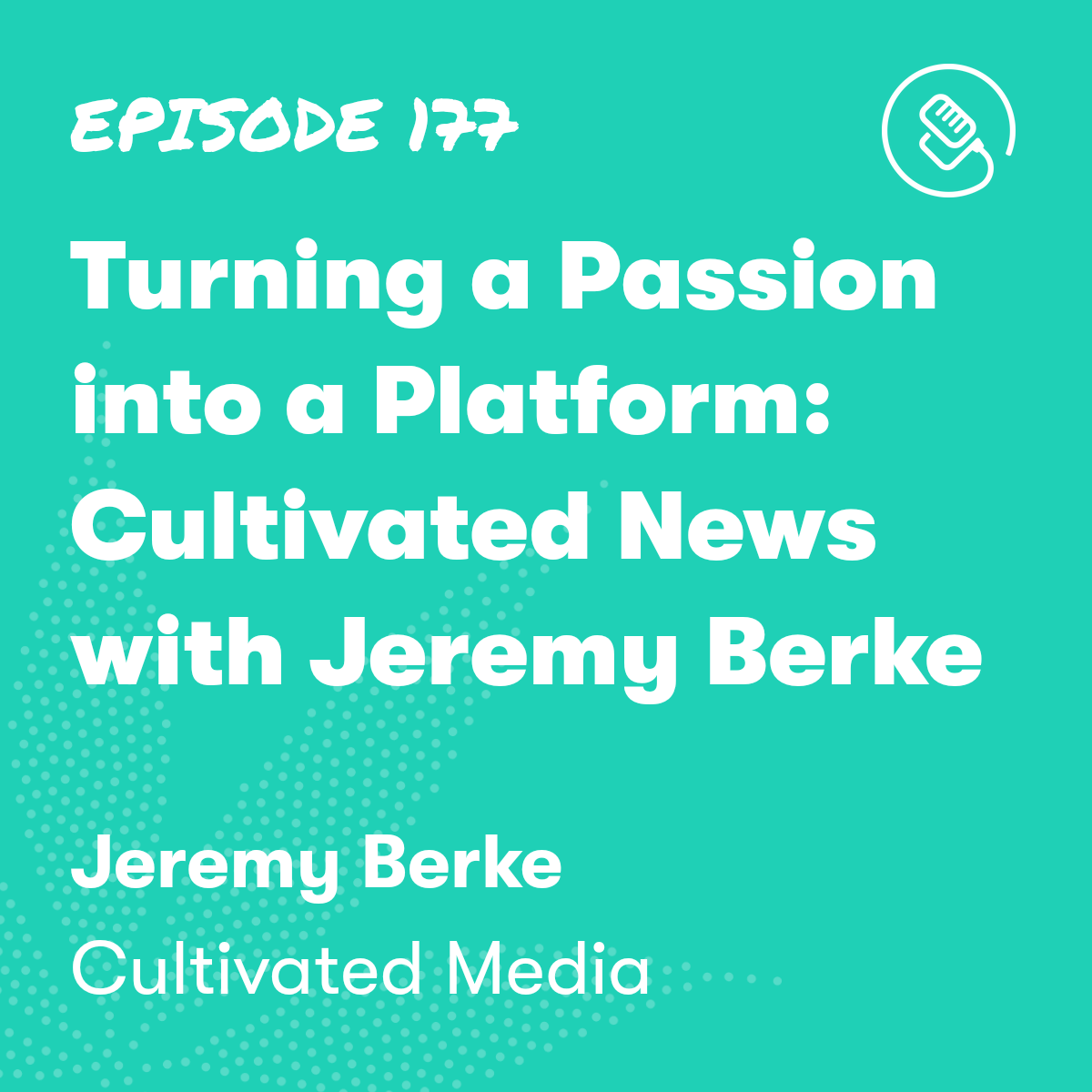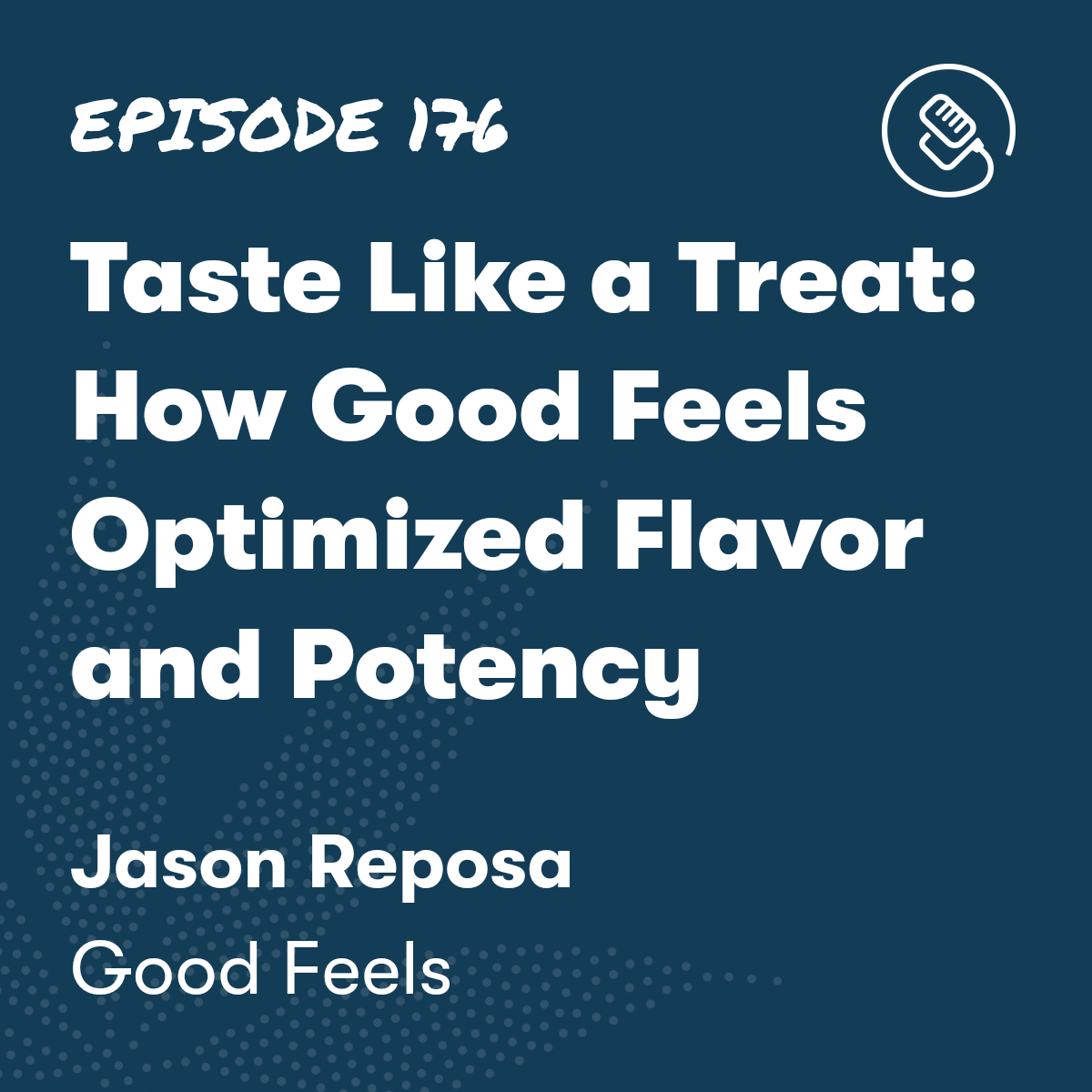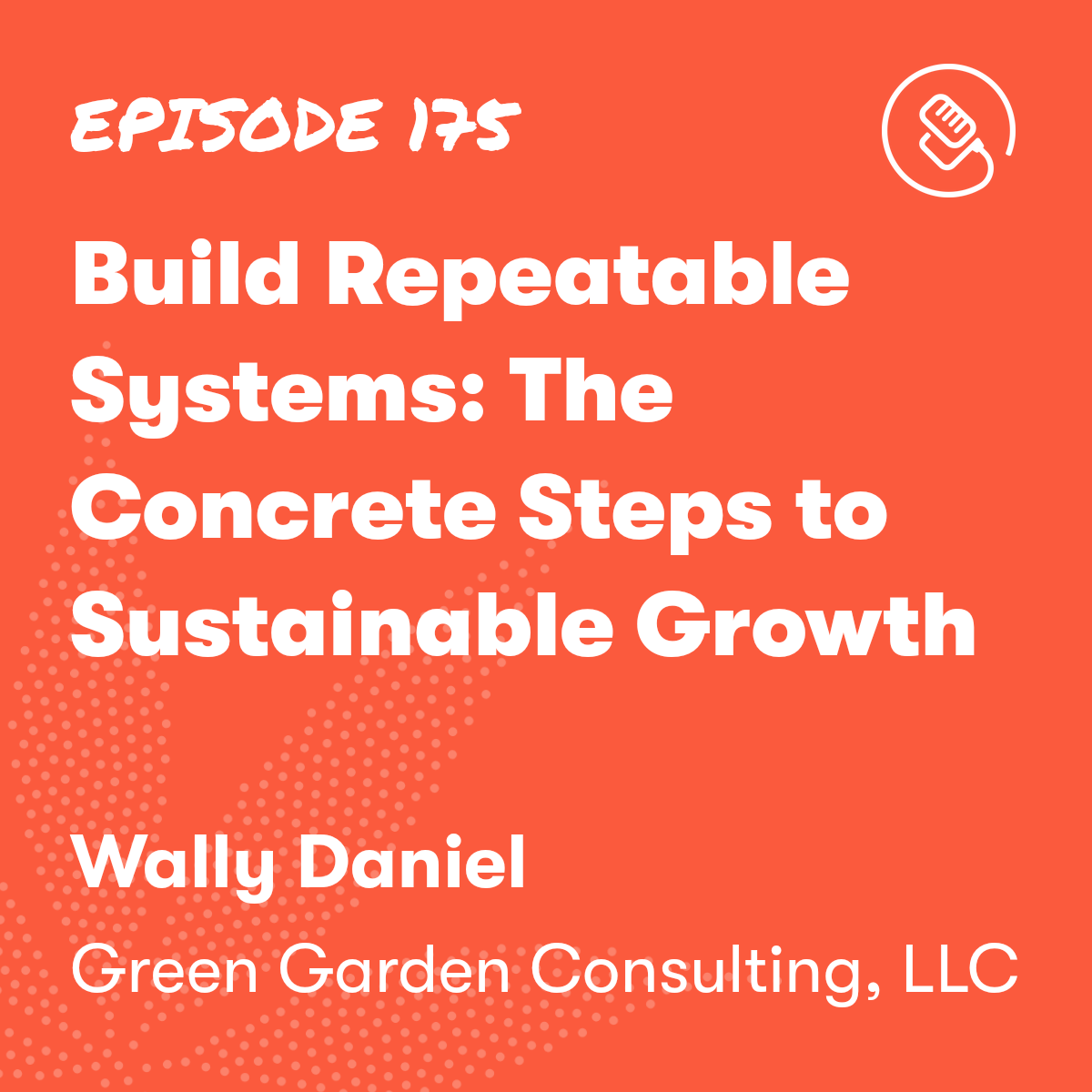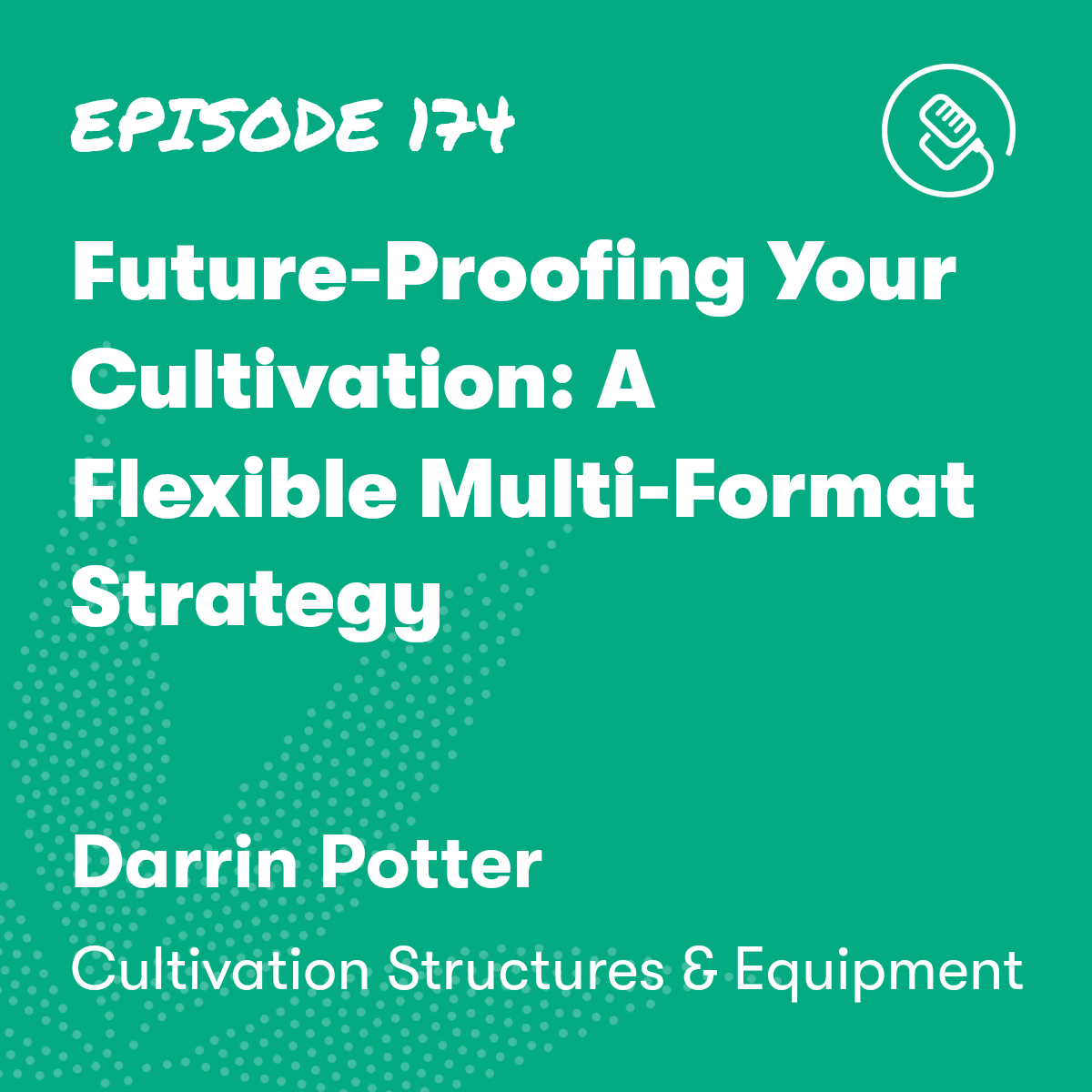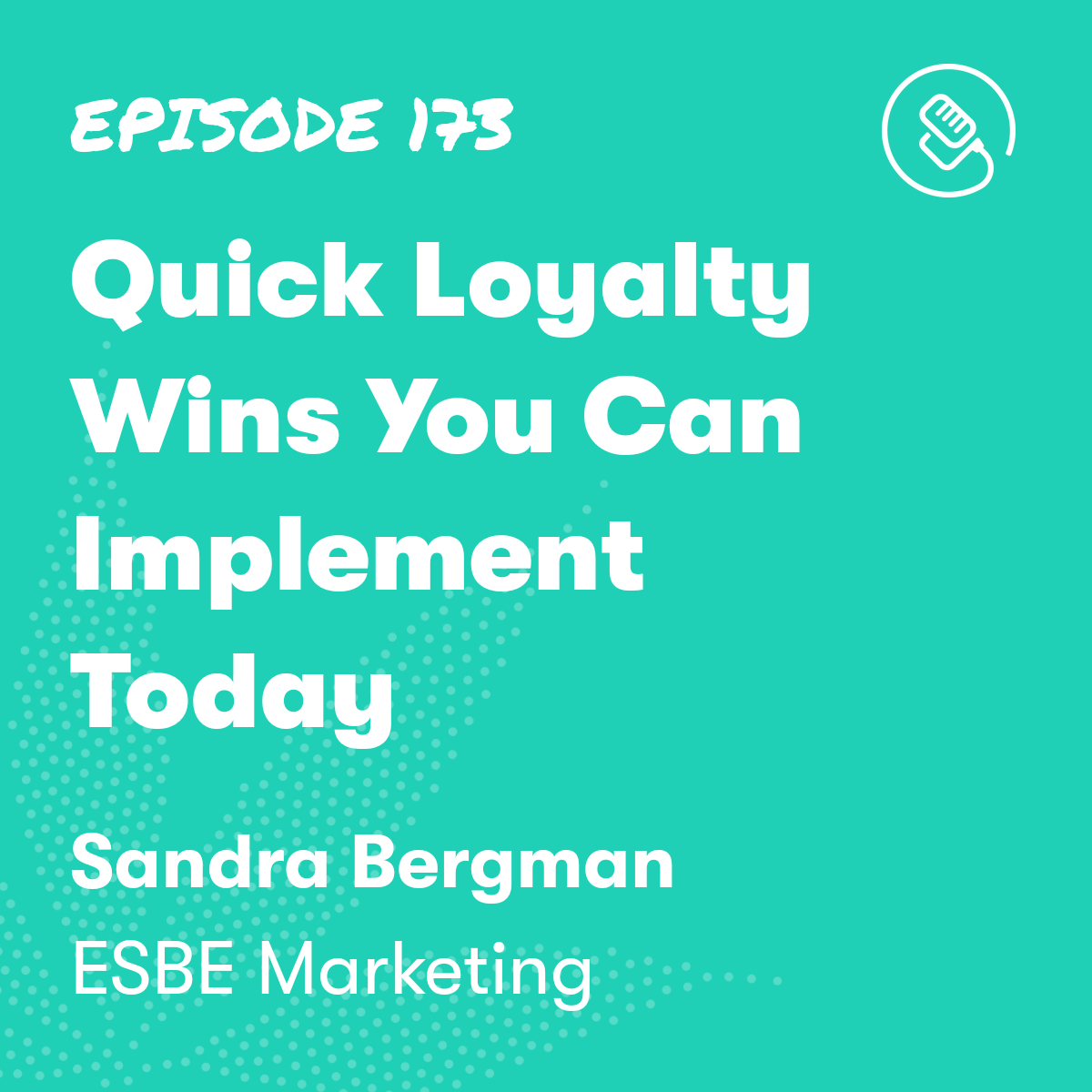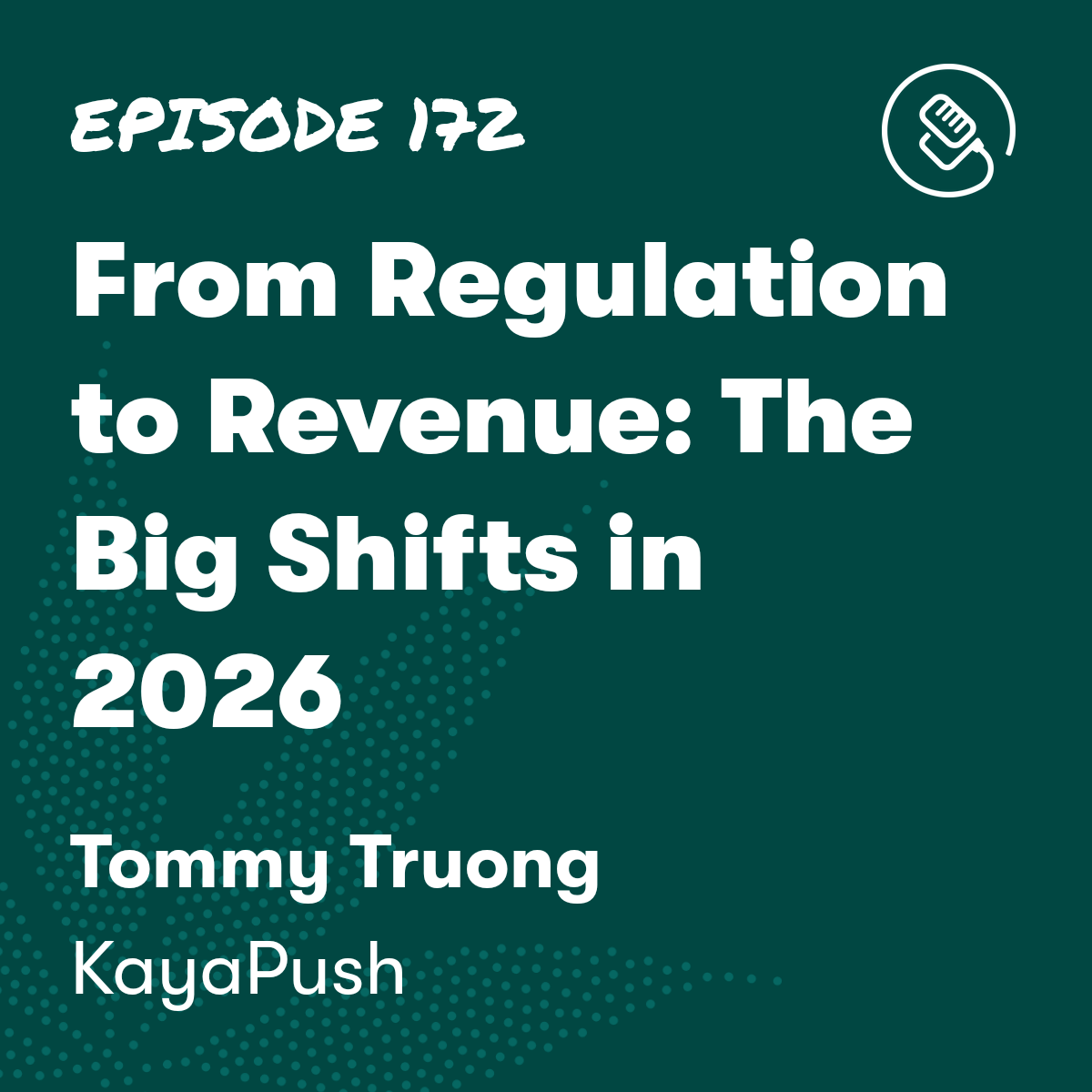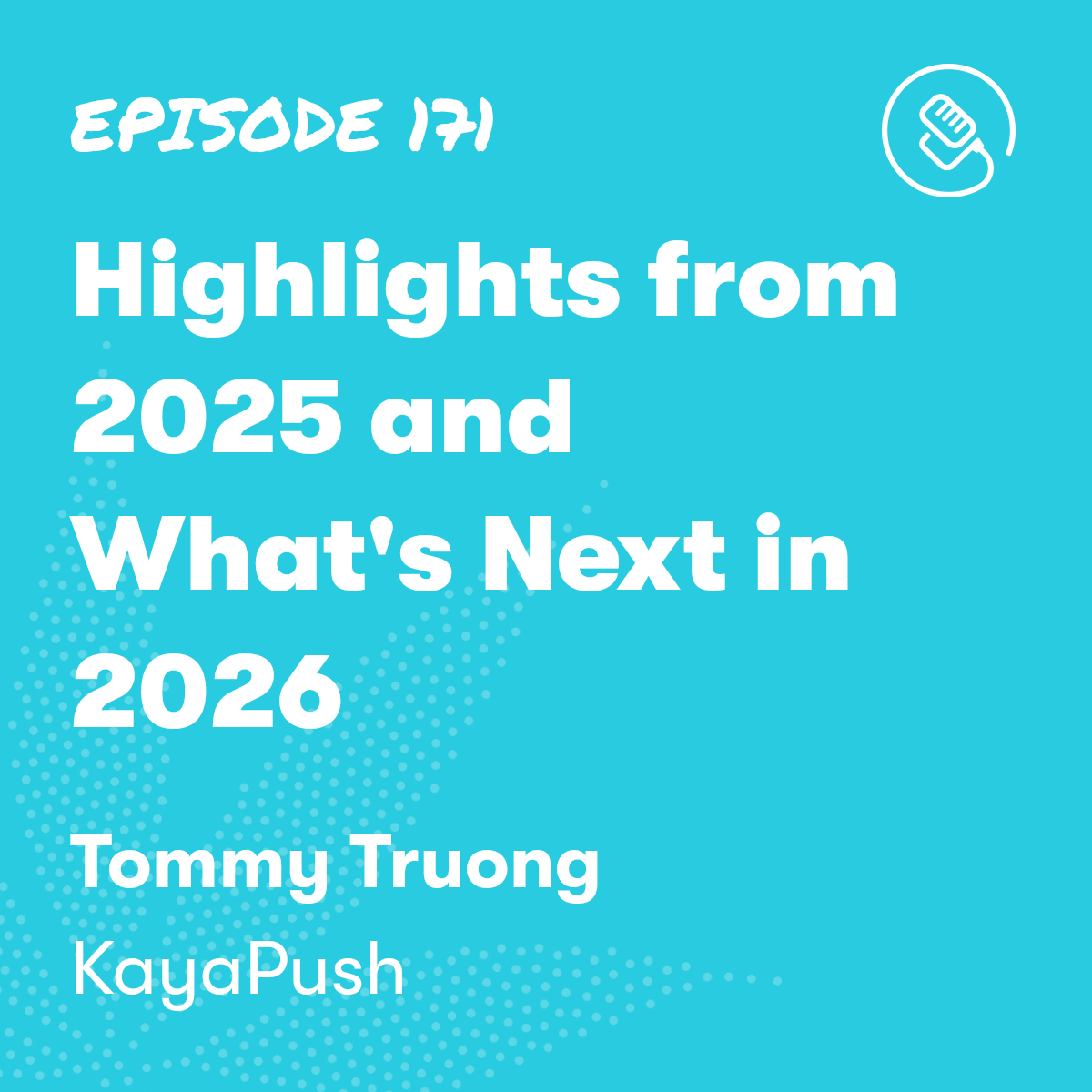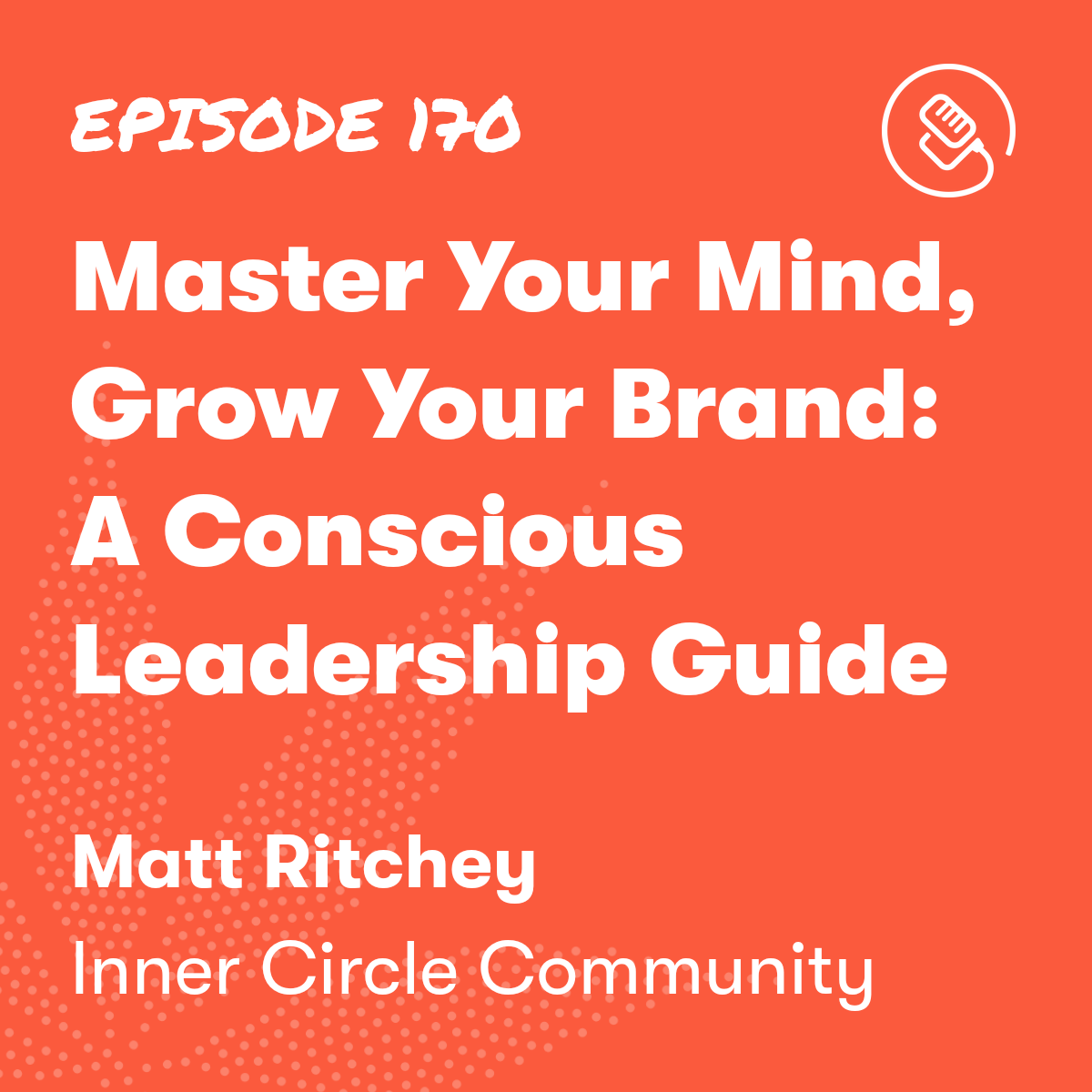

Tech Disasters and Triumphs: What Cannabis Entrepreneurs Need to Know
Episode Description

Episode Transcript
Tommy (2): Hey, everyone. In this episode, we are joined with Sarah Kabakoff. Sarah has extensive experience helping launch and scale businesses in the restaurant and the cannabis industry she worked for Aloha, Toast, and most recently Dutchie in this episode, she talks about the key mistakes that she sees business owners make when adopting new technology and what you would look for in a technology partner, as well as what is around the corner with regards to AI. This is a good one. Enjoy.
Intro: Welcome to the KayaCast, the podcast for cannabis businesses looking to launch, grow, and scale their operations. Each week, we bring you interviews with industry experts and successful retailers, plus practical tips and strategies to help you succeed in the fast growing cannabis industry.
Tommy (2): Sarah, you've helped so many businesses launch in the restaurant industry, in the cannabis industry, what are some common mistakes you see business owners have when adopting new technology?
Sarah Kabakoff: Yeah, I think the biggest one is not owning it. I mean, it's, you know, you're, you put a lot of time into researching the technology and you make a decision to go with a certain platform and then you let your employees run said platform or your general manager or someone like that, rather than you taking the onus of it.
And then when that individual leaves, that knowledge leaves with that individual. And it makes things so much more difficult for the owner or the, you know, the person responsible for the revenue to be able to go in and continue using that platform effectively. So a lot of times where you may have used some of the tools that are really revenue driving on some of these platforms, when that person who effectively knew how to use that tool is gone, it Then that knowledge leaves with them and no one takes the time to retrain on it.
No one takes the ownership of it. And so you end up in a scenario where you're not effectively using that tool anymore. And that creates, uh, you know, a feeling of lack of value of that tool when it's not actually a lack of value. It's, it's lack of your commitment to learning and using that tool. And once again, that's not all people, but I've seen, I see that more often than not.
And especially when, you know, someone that I've been working with on understanding the technology will call me and be like, Hey, you know, Sally just left and now I don't know what to do. And then I have to go back and retrain them.
You know, which is great. Like, I'm happy to go and spend some time, but you know, time is limited.
And, you know, then you get in a situation where it's like, hey, I can send my team to retrain you, but those are billable hours. And then people will get upset because you want to bill them for billable hours for something that they didn't take ownership of in the first place. And then, you know, It becomes my responsibility to then go and retrain them, which, you know, like I said, I'm happy to help people.
I'm always happy to make the commitment, but I need them to commit with me to be able to go on this journey with me so that I can help them be a better version of themselves and help them run their business.
Tommy (2): What would be a really good protocol for owners to take when adopting new technology? How do you assess if this technology is right for you? What you should look out for, for today and tomorrow? And, what would be the best SOP when adopting a new technology?
Sarah Kabakoff: Yeah, so number one, you have to really understand your business, understand where the technology is going to fit, because all of the technology platforms really do very similar things. If you're looking at point of sale, all point of sales ring up a transaction, they will all close out a transaction. Now, they're not all equal in additional features like discounting.
Menu management, the way that you, you, the way that the people actually use, like the ui ux of the, of the system and how you might intake inventory, you know, things like that. They all have different nuances. So really understanding how your business operates and how this technology is going to be able to assist you in being more efficient with your business.
And I think when it comes to the ownership part of it. You don't have to know every single flag and feature of every single platform, but you should certainly understand the base competencies of that platform, where it applies to each portion of your business, and then who to contact or where to go. To find additional pieces of information, because every technology platform has some type of self learning technology someplace where you can go, whether it's on a platform like SeedTalent or if it's on their own platforms, every technology platform has some type of education where you can go and self educate yourself in order to really understand that technology, and so whoever the owner is of that platform,
of the platform that you're buying, you need to be able to understand where those resources are. And be able to make use of those resources in addition to your staff doing it. Your staff can't be the ones who solely responsible for it. Now, everyone's going to say, Oh, I've got a million things happening.
I understand. We all have a million things happening, but it's, there's just some things that you need to protect. And you know, one of the things you wanna do is you wanna prioritize, especially when your technology platform is like the nervous system of your business, because it just becomes such a weak point for you, if that technology fails, if anything is going on with that technology that's not working, it brings your business to a halt, but you should be prepared for all those things, right?
Like when I was working in restaurants, I work at this place called the Silver Spring House here in Cincinnati, Ohio And, uh, I was working for the Aloha point of sale system at the time and their system went down. The whole thing was crashed. And what'd they do? They broke out crash kits and they started taking care of stuff because they were prepared.
They owned it. It was a massively busy restaurant. I'm like one of the busiest in the city and I couldn't even believe the amount of preparation they had when I got on site and saw them just knocking it out. So for them, it wasn't a stressful, um, situation, even though they were doing it. You know, 50, 000 day and their point of sale was down and it's a massive restaurant.
They were prepared, the managers and owners understood and own the technology. And then when something went wrong, they were prepared to be there, to step in and fix it and get it right. And when employees would leave. More people were cross trained. It wasn't just one person leaving with all that knowledge, and now the business is just stuck.
Like, how do I change a menu item? You know, or in the case of a dispenser, you know, how do I move inventory from one room to another? You know, and then you get into a situation where, hey, I'm trying to start the day, and oh, I didn't realize what I don't know, and now I can't make my store function, and now I'm in a, in a, in a frenzy trying to call my provider to get them to retrain me on my technology.
Tommy (2): You're the perfect person to ask this question because you have so much background in technology, particularly in both industries and being in the restaurant industry, you kind of see the future. If you were to start a dispensary today, what would be the top three things that you look for in a platform?
Sarah Kabakoff: Oh, that's a great question. Uh, actually I am investing in a dispensary. So here in Ohio. So that's, that's a great question. Um, I think I would, number one, I would look for what does, what kind of support does the company offer me? And what kind of partner is that company going to be to me? Because that's, that is absolutely the number one thing that I'd be most concerned about.
Because what Something's going to go wrong. Inevitably, something's going to go wrong. No technology is perfect. I don't care what technology it is, but how does the company respond? To that problem. Are they going to be there for me? Are they the right partner for me, for what I want to accomplish with my business?
If I want to have more than one business, does that system scale across multiple locations? Because I personally plan on Hopefully having more than one dispensary in my future, and I want to be able to, you know, centrally manage my menu and be able to have it in one particular database and be able to push that information out.
I don't want to have to have, you know, five dispensaries and add an item five different times and five different POS systems. It's just, it's just not effective, right? So scalability of it because I want to grow Um, I would look for the customer data capabilities and like, what information is it capturing and then re presenting to me and how is it helping me understand my customer?
And I don't think, like today, I think with the introduction of AI, I think it changes a lot of things. Um, there's not a really a platform that's like fully integrated AI into it yet. There are several platforms that do AI related things that can plug into a technology platform like a Dutchie or a Trees or, you know, any other systems out there.
Um, and I think that would be something that I would personally look at because there are so many. So there's a lot of factors surrounding a purchase that we don't think about that affect the purchase. And AI can help us do that, right? So when I think about a transaction, I think about, okay, there's a transaction at my store.
What was the weather that day? Was there an event that drove that customer in? Like, is Miley Cyrus in town? And when Miley Cyrus is in town, Blue Dream pre rolls like triple on sales? I don't know the information for that. But if I went to an AI platform that had deep penetration, across multiple cities where Miley Cyrus was, and they were able to understand how Blue Dream sold across those different areas because they're connected to all these dispensaries.
Well, then, yeah, they might be able to say, Hey, Sarah, you know, Miley Cyrus is going to be in town on Friday. You should probably run a special on Blue Dream because more than likely you're going to sell a lot of Blue Dream pre rolls. You know, here's a special to run. You're within this many feet of the, of the concert venue, and you'll likely see increased foot traffic, you know, or hey, um, on Fridays when the temperatures are below, when 60 degrees, your sales drop by 35%.
By the way, you're staffed, you know, for a really busy day this Friday, maybe you should just take a look at this. You know, I'm looking for stuff like that to come out of the new AI revolution. And I'm starting to see that kind of stuff, like, with platforms like Genetica. Um, there are some other competitors to Genetica that kind of do similar things with, like, recommendations, but they don't go as deep with, like, the operating system and understanding The complexities of what surrounds those type of transactions.
So I would definitely look for tools like that. And I would look for great tools to communicate with my customers. So, you know, I, if you look at, you know, best in class SMS platforms like Alpine IQ that can help out with things, um, Actually, to be honest with you, one of the things I really love is the stuff that your team is involved in with Store in a Box with Temeka and KayaPush and Cure8 and Dutchie.
I actually think that, that showcases how vendors can work together and how a partnership ecosystem can create a best in class solution. Combination of software, you know, because all these, all these companies do what they do really, really well, and they can take you all the way from, you know, application all the way to go live.
And I think I would look for something like that.
Tommy (2): You mentioned so many, so many valuable things. I want to, I want to go back to customer support just quickly. How does one gauge how well customer support will be during the demo coding process? Yeah,
Sarah Kabakoff: You got to ask for references and you got to ask for references, not just from the company. Cause of course, companies are going to give you a positive references. People aren't going to give you negative references. When I worked for Toast, I used to tell people just call any Toast customer, call any Toast customer and ask them about the level of support that Toast offers.
And that was always a great answer to people. And literally they could call any Toast customer. So for me, If I'm looking at a platform, I just want to call a random customer and I just want to ask a random customer what their experience is, I'll call their helpline and I'll just see how long it takes me to get an answer on their helpline, you know, like, especially I've done this a few times during a demo, just call the helpline and sit the phone down and see how quickly they answer.
Am I on hold for 30 minutes while you're doing a demo? I'm still on hold with your helpline. I haven't gotten through yet. That's going to tell me something. Now that's not always the correct barometer because there's going to be influxes where help desks are swamped and things can happen. Okay. So there can always be that one off where you're calling and you get a 30 minute wait time, and that's not the usual.
All right. But talking to references, talking to people that, that aren't necessarily the reference from the company, but you know, use that platform. are really great ways to, to understand that. And then I also want to understand like, what kind of partner is that company going to be to me? Like, are you going to ask me about my technology goals in the future?
Or is it going to be, you're selling me something, I'm going to deploy it and I'm not going to hear from you unless I have a problem. Well, I want to at least get like some type of check in, whether it's an email, you know, maybe I'm a slower business and I don't need a lot of, Love and care from my platform.
So maybe just an email is fine. Maybe I'm a high volume business and I really want to be able to have communication with my customer service or my customer success person, and I wanna be able to run ideas off of them. When I'm saying, Hey, I'm thinking about moving to this AI platform and augmenting it to my POS, what do you think about it?
You know, and then if I'm really busy place and I, when I want to have regular meetings, I want to understand like how often are my stores calling the helpline? What's the resolution time for my tickets? You know, what's on your roadmap that I can be using for your new features and how do they apply to my business?
So if I have a larger scale business where I need to have that kind of partner that I'm going to be in quarterly contact with, to walk through all of my metrics. How's my store performing on your platform, you know, and how are you thinking about the future and how is that going to apply to helping me make more money with my business and see the ROI on the platform.
So depending on the size of operator I am, I'm going to look for a different level of engagement on top of that, just core understanding of how do you behave as a customer success company? Cause everyone gets a ton of love during the sales process. Everybody does. Right? So a ton of love during the sales process does not translate to success after I'm live.
Yeah that's
Tommy (2): the biggest, that's the biggest thing, right? And you, you gave some really good advice on that. I would have never thought to call customer support during a demo.
You mentioned customer data. What would, what do you look for in the capabilities of customer data?
Sarah Kabakoff: uh, well, and in the cannabis world, the PII is so rich, right? So understanding who your customers are because they have to identify themselves with an ID when they walk in the door. So, you know, you really have a really clear understanding of what the customer is purchasing, you know, and what their likes and dislikes may be.
Now, just from a purchase history, you can certainly gauge some insights. But a perfect example of where all this will fall off is, let's say I'm in a market that just opens up and all that's available is distillate cartridges. Well, how do you know I don't want a live rosin cartridge? You don't know that because they weren't available.
I've only bought distillates and now you're going to give me distillate advertisement? Like, I don't necessarily want that. I want something that's going to be more suitable to what it is that I want. So I think understanding how your products fit with one another and how product profiles fit with one another is a key way to be able to help educate your customers and then being able to take new products and introduce them to those new products and then being able to understand what the profile of that guest is or that customer is if you're selling them a new product, right?
So I know Sarah comes in all the time, she gets distillate cartridges, but hey, you know what, today I've got a live rosin cartridge and I'm gonna sell that to Sarah and then now I see Sarah's buying live rosin cartridges all the time so I'm no longer gonna be sending Some type of special for a distillate cartridge.
I'm going to be targeting Sarah with live resin cartridges. And that's where some of these additional CRM data enrichment pieces will come into play to really help you understand that. But I also want to understand the basics, frequency, recency, and spend. You know, how often are they in there? When was the last time they were in there and what's their average spend amount?
And then I want to be able to group those customers into large groups and be able to send them things. You know, maybe I want to do a surprise and delight, and if I'm available to, because not every market, you can't give away products, you can't give discounts, you can't do all that stuff in every single market.
It's all a little bit different, but if I have it, if I had the tool available to me, hey, maybe I want to send you a 5 coupon or a 10 or 10 percent off coupon or something, because I see that you come in every Friday, but you've missed the last two Fridays. Well, something's going on there. So let me just go ahead and reach out to that customer and let me build a segment of those customers that I can reach out to in order to maintain that, that, that frequency, recency, and spend, right.
And understanding how those customers group together and how you can communicate with those customers will also give them a feeling of like, Hey, you know who I am. Right, and it doesn't have to be that that cheers everybody knows my name when I walk in there. Hey Sarah, great to see you Sure, I'm sure that will happen too for some of those customers But when you see 10, 000 customers a month and somebody comes in four times a month, you know, that's still very frequent But maybe the bud tenders don't always remember them or your retail associates don't always remember them But the data is still there.
And if you're tracking that and watching the way that your customers are interacting with your business, and you have a deep understanding of the data that, that surround your business and that you're generating, you'll be able to drive those insights and then maintain that one to that one to many relationship with those customers that feels more one to one.
Tommy (2): You're probably in the process right now of looking into customer loyalty platforms. What, what do you look for in that, in that loyalty platform?
Sarah Kabakoff: Um, I don't know that it's necessarily, like, loyalty platforms in general that I think of in that way. I think loyalty is interesting. Okay, but a loyalty program is only as good as the data that you feed into it. Because, like, sure, I can give you a punch card, you get a certain amount off. I can build some basic emails and build some basic journeys and stuff like that.
And all that stuff is great. But once again, it's like, what, there's so much data out there today. That's publicly available. So when I'm thinking about something like how I would engage my customers, I'm not thinking necessarily just about loyalty. I'm thinking about understanding them in general. And not just, do you want to feel mad, glad, sad?
Like, how do you feel? Not like that. I want to understand. Like, very, very intimately, like, what do you like? What are you seeking? Are you here for pain relief? Are you here for recreational head change? Like, what are you here for? Why are you here? What's the, what's the, the facts surrounding why you're here?
And that's where, once again, I think AI is just changing the game, and I know AI It's still an infant right now. Okay. And there's so many buzzwords. There's so many people saying AI, AI, AI, and there's a million companies that have popped up, but there's only a few that I've seen that have a really, really true AI.
And when you have a truly, uh, you know, Tech Forward Platform. You're looking at all the things that surround the transaction. So, you know, looking at those things when I'm, when I'm trying to judge what are my specials going to be, or how am I going to communicate with these particular customers, or what should I put on my shelf, or where should I put those items on my shelf.
I wanted, I want something that's looking at all the data surrounding it, not just the data that's generated by the platforms that I use in my store. I want something that's looking at everything. I want something that's looking at demographics, technographics, psychographics, and all this information is actually available on the internet through places like V12 and Factual and Eventful and all these aggregators of things that are happening around you.
So how do you know your dispensary doesn't do 10x better when it's within 100 feet of a Chipotle? Do you know that? You don't, but AI can figure that out by understanding where are the closest Chipotle's to all the dispensaries and do the demographics of one area that supports these Chipotle's also support really successful, um, dispensaries and what works in Kansas City that they can go and they can look based on all this data publicly available data that can be ingested and say, okay, Kansas city is very similar to Cincinnati.
They're very, very similar cities. So let's look at all of the footprint of the neighborhoods that these successful cannabis businesses are in and the type of people that live in these neighborhoods. And how do we find that same place in Cincinnati? And maybe it really is that, Hey, there's a CVS. A Chipotle and a Kroger, all within a mile of a dispensary with, you know, this type of income, this type of you know, education level and this is where dispensaries are doing 10x what the other dispensaries are doing.
Oh, and hey, by the way, You know, the area in Cincinnati, Wyoming, Ohio looks just like this area in Kansas City. We think you should look for real estate here, and we think this is a place where your business would do really well. Oh, and by the way, here's what this type of profile for this type of customer has liked in the past.
Not saying that that's how it'll go here, but here's what you should try, and then you can start doing A B testing. And you can start doing really cool stuff with machine vision and understanding where things should be in your store and the flow inside your store. There's so many neat things happening.
So when I think about loyalty, I don't think about loyalty. I think about customer engagement as a whole. And I think about that individual as a person. And I think about how that individual fits in with other individuals that are like that and how I can create that one to many feet, that one to many feeling that feels like one to one.
Tommy (2): We've, we're just right at the infancy of this and what you've mentioned, I think within five years, it'll probably be a reality.
Sarah Kabakoff: I think a lot of it's a reality today in other industries that aren't as immature. This type of stuff is already happening today. Like, I've, I've seen it. I've
been part of, of working on it. I, you know, I, there's drive through AI systems that are working in a restaurant business today. There's plenty of camera systems that are now starting to do AI and understanding the flow of traffic and starting to, and starting to marry this outside data.
So it is happening. I think we're probably. I mean, I think we're pretty close today to some of the insights, especially with, um, uh, you know, the, the AI and some companies, like, like I said, like this Genetica company that I've been doing some, uh, work with, um, they've got a really impressive solution.
They're doing a great job. I'm not trying to pitch the company here. It's just, it's been very, very, very intriguing to me to watch the growth and to see the things that they're doing, because they really are taking all the learnings from, you know, uh, Um, and so we've seen a lot of, uh, outside, uh, AI growth from companies like Salesforce and Microsoft and Amazon.
And they're starting to pump this into their platform and then they're applying it not just to cannabis but to all kinds of stuff. Medical recommendations, CBD recommendations, all that kind of stuff. And they're forward thinking about all these things. So I, I think we're, you know, we're getting close today, I think we're probably a lot less than five years away from this stuff happening.
Especially as you Compute power just keeps on going up and up and up and up.
Tommy (2): I sarah, what, what should owners think about or have in place before they think about opening in their second location?
Sarah Kabakoff: Well, number one, they should have their SOPs down pat and they should have a clear process to run every facet of their business and have it running like a tight ship, right? Before you go and take a second location, make sure you have everything locked down at your first location. Make sure you understand everything about your business, right?
Don't be absentee, be very present and understand that. Make sure you understand your technology, like we talked about earlier, so that you understand what happens when I add a second location and what now do I have to do in order to make sure that location is successful on the tech platform versus having Just one location, right?
Understand what the neighborhood that you're going into, the area that you're going into, what does that community want? Is it the same type of community that your current dispensary is in? Because it's a completely different type of community than the same customer base that you're used to serving in your Current dispensary may not be the same customer base that you're serving in the second dispensary.
So how well do you understand the neighborhood that you're serving? The customer base that you're serving? How well do you understand the products that you're stocking in your dispensary? And why they are selling well on your dispenser and not selling well in your dispensary? How well do you understand your inventory levels and how you're supposed to order and the throughput?
You know, I think those things are some of the key things that you really need to understand. And, you know, How, how are you with your staff really? Because retaining staff and making sure that your staff is there and consistent is really key to providing a great customer service experience. And we all know that staff can be a revolving door.
So really understanding your staffing model, how you treat your staff, you know, what your staff needs. Um, are you paying them well? Are you providing the right benefits for them? You know, is your second location going to have great staff that create the great customer experience? And what is your brand's identity, right?
It's one of the biggest things is what is your brand's identity? Because if you don't have a distinct personality and instinct, um, identity, like I, as a consumer may not come back. I, I will actually drive an extra 20 minutes to go to a dispensary and That I like more because I like the, the aesthetics, the feel, the employees of that dispensary more than one that's a mile from my house, right?
Just because I want to have that great experience and I want to feel like that dispensary cares about my experience there. So I think understanding those things are key before you ever, you know, open a second dispensary.
Tommy (2): Do you recommend, and what are your thoughts actually of having a consistent brand identity that mirrors your, the first location?
Sarah Kabakoff: Um, I think it's important because I think your brand identity is who you are. So I think it's very important. I think your brand identity tells your customers who you are, explains to your customers how to interact with you, and trains your customers how to treat you as well, right? So I think it's really important to understand that before you open a second location.
And also, if you have a great brand identity, then you know where your brand fits. If my brand identity is I service, you know, uh, women and I very much cater to women, I'm not going to want to go to an area that is very frequented by men, where women aren't going to spend time. I'm going to want to go to an area that's more likely to target women consumers in an area where they might go to shop naturally.
That's convenient for them. Right. Or areas with demographics that are higher in women, because we all know women buy more cannabis than anyone else. Right. So like, if I'm going to cater to that demographic, I want to make sure that the spot that I'm looking for also meets those demographic requirements.
Tommy (2): and it probably helped with inventory selection too, in
having a consistent brand identity.
So Sarah, tell, tell me a little bit about Mind Chef.
Sarah Kabakoff: Yeah, I'm, uh, I'm really excited to launch MindChef. MindChef is going to be a creative agency that does several things, okay? Um, but the main, the main driving force behind MindChef is to rethink the way that we all interact and think about things. through storytelling. So we're gonna do that in a few different ways.
One way is of course traditional means through social media, creating short form content. A lot of times we'll go out and we'll just interview people and I'll ask people who look very different similar questions and it's amazing the answers you hear and the goal really is to show that we're all the same.
No matter what we may look like on the outside, we all have the same experiences. We all think and feel the same way, and there's so much you can learn from a person. Even if it's how not to live, there's still things you can learn from every single individual. So I really want people, especially with like all the division in the world today, I want
people to rethink the way you think of other people, because we are all just the same, and we are all just trying to make it on this, on this spinning marble going through the universe.
Right? So
that was one of the things that really drove me to Mindchef. Um, but of course, with my experience in cannabis, I also want to rethink the way we think about cannabis education. Because I love all of the great cannabis education facilities out there. The THC Museum in New York, there's stuff in Vegas, I mean there's a lot of really cool stuff out there.
But most of them have some type of like, what the general public would consider a stoner feel to it. Okay, like in the THC Museum in New York, Not taking away anything from them, but you go in there and they lay you on this this thing and they spin the room Around the ceiling around you and it's like my grandmother Does not want to have that done, right?
But my grandmother does want to be educated about cannabis and my grandmother doesn't know the difference between Delta 8 and Delta 9, THCA. She sees all this stuff, but she has no idea about any of that, and she's not going to go into a dispensary and ask. She's just not that type of person, but she probably would come with the family or with a group of people into this facility and learn because the goal is to come in and learn through short form content.
So think of TikTok or Instagram come to life, right? So I walk in, I walk down a hallway to my left hand side, there'd be like a board that has all the information I might need on The difference between, you know, Delta 9, THC, A, and Delta 8, okay? And then on the other side, directly across from there, There will be a short form movie playing and you'll have directional audio so that you can still engage in Conversation with one another and then engage in the video And if you look down the wall, you'll see all the little circles just like you would in your Instagram feed So you instantly know that the next story is coming and we're telling stories of cannabis through diverse Faces in order to help us understand that hey cannabis is not this thing that that you know The war on drugs has begun Made a lot of people think, you know, and in certain areas, this works better than others.
And like in Cincinnati, where I live, where the first one is going to be, you know, it's really great because Ohio just legalized cannabis. And as soon as the vote happened, what happened around here? City council started holding emergency meetings, banning dispensaries because they're not, Educated
and I want to be able to invite those city council members to the Mind Chef facility to become educated So as you
walk through it's not just you know How does it it's not just like, you know, how does it appear in popular culture, which we will do some of that stuff You know the Willie Nelsons and the Snoop Dogs and stuff like that of the world We will address that towards the end, but I want to be able to address like other What are terpenes?
What is the
entourage effect? What's CBG? What's CBN? What's CBC? What's THCV? Because people don't know this. Even experienced consumers don't know this information. And so I want to teach them in a really approachable way that creates community and creates a conversation that people can have. And I want at the end of that museum, I want them to walk out and be like, I learned something today.
And the best part about the museum. It's going to be when you walk through it, you get to learn all this cool stuff, how to consume cannabis, all about the entourage effect. And you go into like pop culture, all that stuff's great. But then the last two rooms are the most impactful. The second to last room is the war on drugs room.
Okay. And the war on drugs room is the one that's going to show, Hey, you've learned all this really cool stuff about cannabis and all these cool things about how to consume cannabis and all this neat stuff about how it helps people. But there are people sitting in a prison cell. Today for selling cannabis and that is unacceptable and we as a society need to do better Right and then we can teach about the damage that the war on drugs has done to black and brown communities And how we as an industry need to stand up and do better and do right by those communities And I want to create an area where you can do letter writing campaigns.
I want to be able to put money on prisoners books
right there in the museum. Like, I think those things are really, really important. A lot of this was inspired by my friends at 40 Tons because they built the mock prison cell for a booth at the trade shows and I want to have the same thing. I want to have a prison cell in there so
you like, so you get the feeling of there's human beings living in these boxes because they sold this plant and they're non violent offenders living in a box because of a plant, right?
It's not, it's not right. So I want to be able to provide that experience for people to really say, Hey, I learned all this cool stuff, but here's the realities of what's going on in the world. So I think that's going to be really impactful. And then the last room will be an AI room, where, this is how I actually, you know, uh, came to be introduced to Genetica.
So I'm going to build an AI room where, um, doing some Plexiglas boxes and we're going to do, um, Uh, projection mapping and build holograms. And so you'll be able to actually have a conversation with the hologram. And it was somewhat inspired by this, the Sphere in Las Vegas. I don't know if you've ever been there, but in the Sphere, they have like these AI robots that you can have a conversation with.
Same idea, not a robot though, because I definitely can't afford that. Okay, but a projection hologram. It's really, really cool. And that's like a neat thing to interact with, right? Very Instagramable, and then you can ask it any questions. And people like my grandmother would be able to go there and say, Hey, I've learned so much, and now I understand the difference between CBN, CBG, THC, THCV, CBC, right?
So now I can go and I can ask an intelligent question, say, Hey, I'm really having trouble sleeping. You know, will CBN help me? Here are my symptoms. And then the AI will be able to give you a scientific reason for why that particular product that it may or may not recommend, um, will, you know, be helpful for you.
Right. And then you exit and you go about and you walk out and you say, I learned something, right? So we'll run that content for six months in Cincinnati, and then we'll move it to other areas where there's a lot of kind of curious, right. And where there's a lot of people who. Um, where states are just on the fringe of, uh, of legalizing cannabis so that you can have a great conversation and we can educate people about how to consume and how to think about cannabis pre legalization.
So we'll move the content every six months to different cities, but the second content that will come behind it in the, uh, in the, in the museum here in Cincinnati, will be video games and the history of video games, the modern history of video games and like what they, where, where they are in society today.
Then we're going to do anime as the third series. And then the fourth series will be um, wellness and the microdose revolution. So all about psychedelics and how that's helping with PTSD and how microdosing in general, not just like psychedelic mushrooms or MDMA or ketamine. But also Lion's Mane and different products that are out there and how microdosing is changing the way we think about health.
All right, so we want to keep on doing these like fringe of society
type ideas that need more
mainstream understanding and can be presented in a way that changes the way we think about those. And then as with the first cities we want to do is Cincinnati, second one is Nashville, third one is Atlanta.
But we also want to start going into other states where there is currently legal cannabis, but it will be a completely different type of activation with our cannabis, uh, exhibit. We would likely, in places that we could, we would likely work with dispensary partners to actually have a dispensary on site.
And I think of it more like Erba Markets in LA, I don't know if you've ever been in there, but they have, like, brand showcases. And different areas of the store. And I think of it something like that or what Planet 13 does with their brand showcase. You know, you bring in a brand, you bring in a dispensary to power the, the operation and then you have brand showcases where, you know, I'm going through, I'm getting a recommendation from the AI and then I can actually go buy the product right there.
And that's just not possible in Ohio, Tennessee or Georgia right now. But it is possible in a place like Michigan. So I would love to take something like that to Detroit once we've really kind of gotten through and understand the processes. And then, the next phase of it will be, everything will be augmented reality enabled.
So, you know, today, we're not wearing augmented reality glasses everywhere. But they're coming and they're coming faster than we know it, right? Apple's already working on glasses. They've got the Vision Pro, the Metta, uh, ones actually have the Metta ones. You can now say, Hey Metta, what am I looking at?
It'll take a picture and I'll start to tell you what you're looking at and you can ask it more questions about it. So eventually the lenses will be powered too. And we want to be ahead of that. And we want to have it so that you can click on your AR experience inside the venue and take an extra step into the future and really be able to make it more interactive through augmented reality.
Tommy (2): Well, that's awesome.
Where, to be fun.
uh, when are you opening? And, and where? In Cincinnati?
Sarah Kabakoff: this is, this is the part that's frustrating because we have told landlords that the first subject matter is going to be cannabis and we've been rejected by three landlords now because of the cannabis. And I'm like, but we're not plant touching. We're
just educating. And they're like, no, we won't touch that subject matter.
And it's like, are you kidding me? So, um, I'm still trying to find a location, uh, I've already got my, my builder, actually Temeka is the one who's going to end up building it for me, so I'm really excited to, to pair with Temeka as they build work, world class exhibits and stores. Um, and I've got some, uh, some friends of mine that have gone through the Ganjie program.
Helping me with building a lot of the content, recording the content. So as soon as we get the facility and we get a, and we get a lease signed, hopefully we'll get someone to vacate. We have our eye on a couple properties in downtown
Cincinnati, because the main thing I really want to find the location is I want it to be, you know, so you can make like a date day of it, or you can do whatever you need to, um, you know, while you're there visiting.
Tommy (2): Where can people find more information about this and when you guys open?
Sarah Kabakoff: Yeah, so right now, um, you can find us on all social medias, Mind Chef Productions, Facebook, Instagram, TikTok, um, and then we have MindChefProductions. com, but the website is still pre launched right now, because we're still working on all the websites, all the content, stuff like that. I wanted to launch on 420, but unfortunately, uh, as content bee, I, Underestimated the amount of work that it takes to build all of this content.
And so we're likely still a few weeks out from launching the website and making sure that the content is crisp. Um, but then we're going to start doing some really targeted advertising for the museum and being able to say, Hey, sign up early, you know, get discounts on tickets, stuff like that, but all social media should be able to find us.
Tommy (2): Awesome. Sarah, thank you so much for coming on. You dropped some gems thank you so much for, for joining us
Sarah Kabakoff: Thanks for having me. I appreciate the opportunity.
Tommy (2): Hey, everyone. I hope you guys enjoy this episode, please, please, please support Sarah. Sarah created MindChef productions. To help push the industry forward. She's on a mission to demystify this plant to those who are unaware. And she wants to educate people on the medicinal properties of this plant and how it can be used to treat a variety of ailments. It's really great work. She's doing. Until next time, take care.
Outro: Thanks for listening to the KayaCast podcast. We hope you enjoyed the show. Don't forget to subscribe to our podcast in your favorite podcast app, or visit our website to learn more about our guests and to access the full archive of episodes from the show. Join us next time as we continue to explore the world of cannabis and help you grow, launch, and scale your business.
